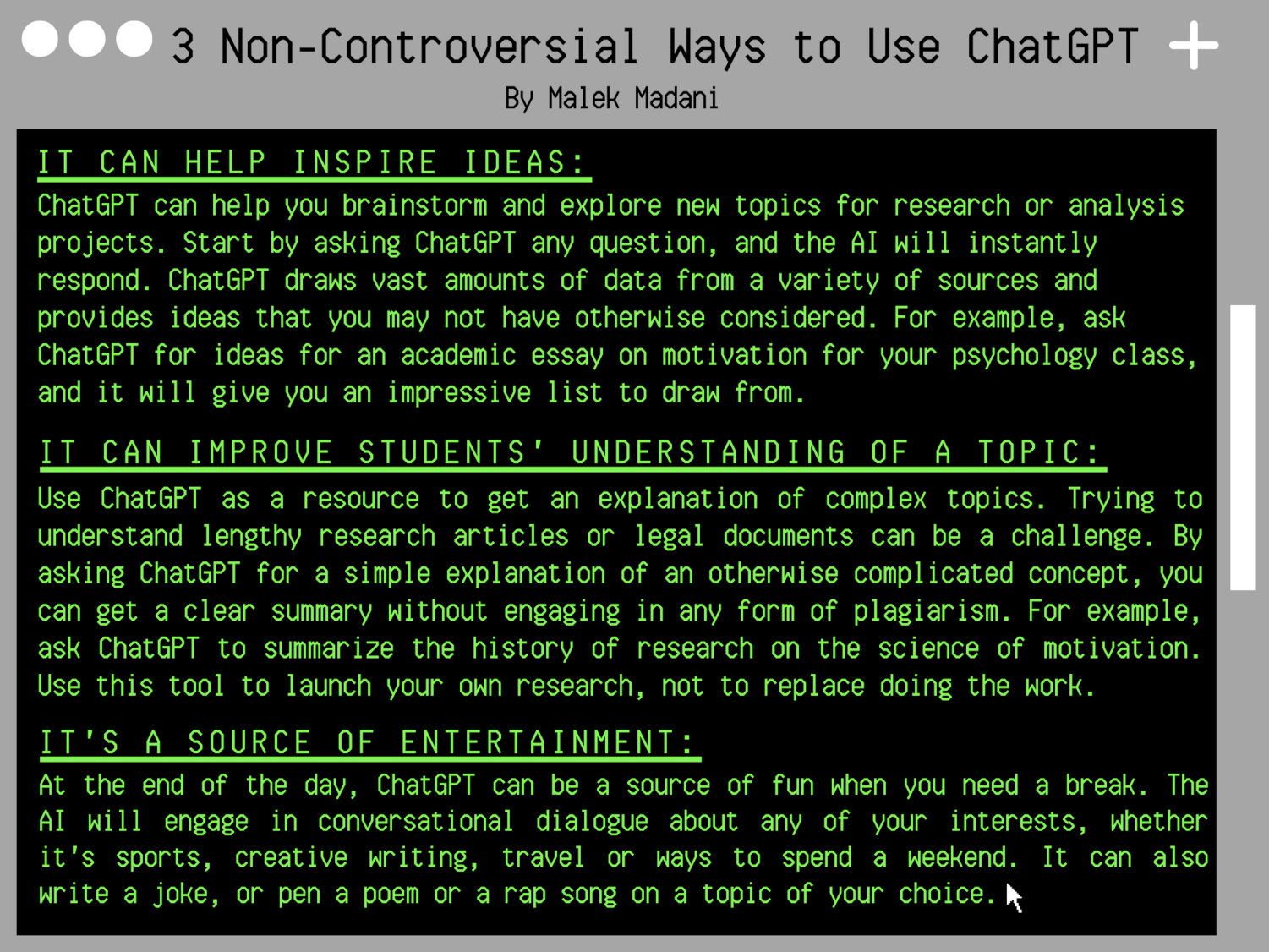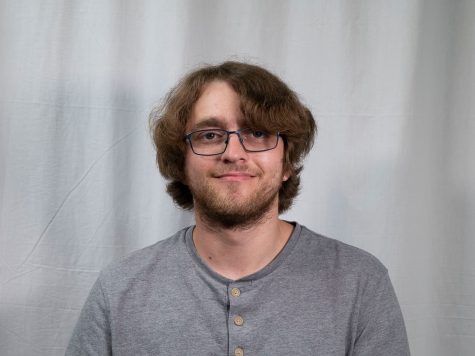With recent advancements in artificial intelligence, what was once thought to be science fiction is quickly becoming reality. The rise of ChatGPT and improving deepfake technologies is making AI’s role in our culture a daily conversation piece. However, overreliance on AI in media and entertainment could lead to a stagnation in ideas that progress society and perpetuate harmful biases and stigmas.
ChatGPT is a communication application that uses artificial intelligence software. Users can ask a general question like “What is a brief summary of the fall of Rome?” and it will generate a response that mimics human writing.
Like other forms of AI software, ChatGPT draws upon data given to it from books, articles and websites. According to Lex Pulos, Santa Rosa Junior College communications studies instructor, the continued use of ChatGPT has the potential to be perpetually damaging to artists and creative jobs.
Media companies can hire writers to start a TV series for a season and then use AI to generate material for subsequent seasons based on the original writing. This will also be true with other media related jobs, like acting.
“ChatGPT is just plagiarism. It’s a company of people who have stolen material from artists, who are never going to receive proceeds from stolen material,” Pulos said.
In the show “Obi-Wan Kenobi,” on Disney+, Darth Vader’s voice is entirely AI generated with a program called Respeecher. Previously, Jones himself or an impressionist would have been used. “You undermine voice acting as a community,” Pulos said.
In upcoming movies, including “Indiana Jones and the Dial of Destiny” and “Here,” studios are de-aging the lead actors using AI. “What impact will this have on new actors?” Pulos asked. “If we just de-age the actors we’re already familiar with, are we limiting new actors or their potential?”
Pulos speculates that this type of AI technology overuse will trap media in a creative limbo. We won’t see any- thing new or significant come out of Hollywood or video games because everything will be the same. Pulos said that AI has the potential to perpetuate societal biases.
“Algorithms are a biased medium, just like everything else,” Pulos said. “You’re coding in classic examples.”
One classic example is automatic hand dryers, Pulos said. The majority of hand dryers are produced in China, Japan and Korea, and tested with people who have lighter-skinned hands.
“So the algorithm that is supposed to detect hands moving is embedded with biased coding of what reflects enough color to turn on a hand dryer,” Pulos said. “There are numerous cases of Black populations who can’t dry their hands with automatic hand dryers.”
AI systems used in entertainment rely on large datasets to make decisions. If those datasets contain information that are biased or discriminatory, or are being handled by someone with biases, the AI’s output will frequently reflect those biases.
“If we start leaning on that without any understanding of black box data material or the training of helping us understand how to use AI, we start mass producing or relying on stuff without any real cognition or skill set to it,” Pulos said.
Pop culture, especially movies and games, is highly influential on society. If we rely too much on AI-generated media, then we’ll get stuck in a loop of recycled content. Instead of new concepts, we’ll get never-ending remixed versions of the familiar.
“I think the general idea is that we will kind of create content for the lowest common denominator,” Pulos said.
Continued creative dependence on AI also perpetuates dangerous stereotypes. In a time when racial tension has led to unprecedented violence and politicians are passing laws that trample on LGBTQIA+ rights, bias in media-based algorithms will only lead to further division among Americans.
“The interesting thing about the arts, film, cinema and video games is that they challenge us to deal with some of this,” Pulos said. “If we just produce stuff as fast as possible, we might miss some of the more humanitarian, philosophical, theoretical elements that make art compelling.”
AI is here to stay, for better or worse. Still in its infancy, we can only speculate on how it will affect media and change the world. With regulation and thoughtful implementation, in time we will begin to look at AI with less suspicion.




